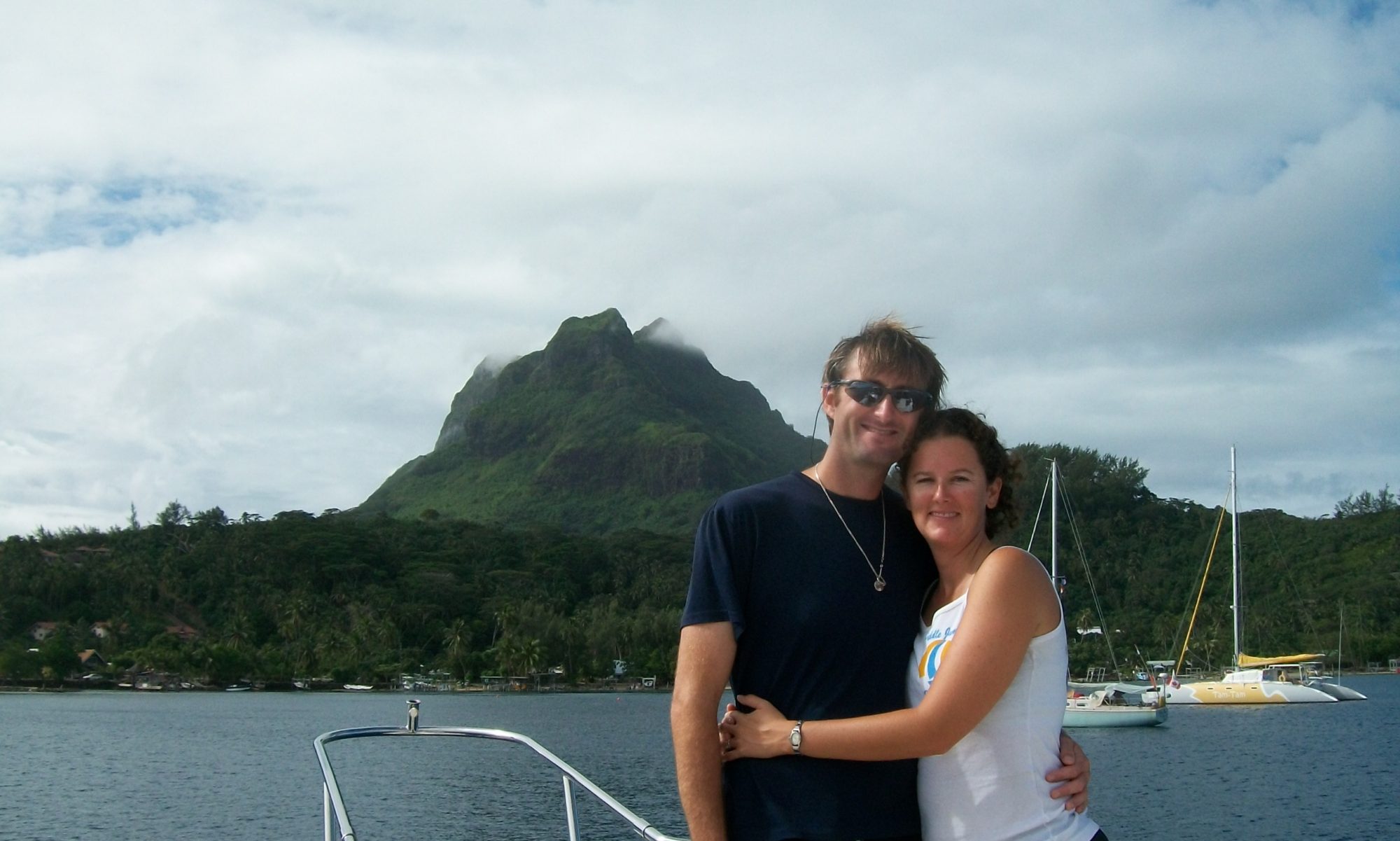En route Rarotonga, Cook Islands
Before we enter the Cook Islands you may be curious where they take their name from.
The fact that you don’t yet know means that we have been horribly remiss in failing to enlighten you about Captain James Cook, one of the most amazing explorers in the history of the planet Earth. Ever. No exceptions or qualifications or riders necessary. Dude’s at the top of the heap. Though Greg cannot find any hard confirmation, similarities to names of captains of starships with almost identical missions are more than likely not coincidental. (Ok look, both went “boldly where no man went before” and ended up stumbling across insanely sexually open women, both were captains, both came from poor backgrounds, both were pretty handy in a fight, one ship was “Enterprise” the other “Endeavor” I mean come on!)
If you spend any time in any part of the South Pacific you will find bays, islands, mountains, heck entire countries named “Cook.”
The man has his own line of island beers named after him! (and they’re good beers too!)
Well why is that?
British Captain James Cook basically discovered the entire South Pacific. Yep. Whole thing. Not exaggerating. Everything from the Marquesas to…and including…Australia. Thousands of islands, millions of square miles of open ocean, almost all of it gets attributed to him and his sailing ships. Oh and he didn’t sail because, like us, it sounded like fun to get mugged by a freaking Kracken in the middle of the night. He sailed because “back in the day,” that was the only option. Pop his name into a Google search sometime and do a little reading on this guy. He’s scary amazing and was wicked smart. Sailed off into the blue back in the day when a lot of people would bet even money that that you would fall off the side of the planet and your odds of actually figuring out where you were with any accuracy was about a billion to one. Have you ever tried celestial navigation? We took a college course in it and we still wouldn’t put even money on it as a reliable means of navigation.
It’s a better way to go than calculating local apparent noon, trust us.
He came back from the unknown with accurate charts, detailed accounts of hundreds of plants that no one had ever heard of, places that defied the imagination and some of the most interesting cultures of humans on the planet hereto unknown to Europe. Oh wait, he also discovered a continent for the Western world…which, being as there are only 7 on the planet and 3 were “discovered” by either being rigidly attached to or being Europe…look it’s impressive. Here’s a rough approximation of what he explored for the British Crown
We’ve been sailing for months and we haven’t even managed to hardly scratch the surface of what this guy pulled off…and we had charts and a GPS! Now granted, some of those charts have likely not been updated since he last dropped by but the point is, what we’re doing is considered ambitious and we actually know there is land out there. He didn’t. When his ship hit a reef because literally no one had ever charted those waters before, he didn’t just pull into the marina for a haul out and refit…oh no, this dude beaches his ship, tells his crew to put their big kid pants on and start chopping trees on an unknown island for replacement parts. And let us tell you what, rebuilding a tall ship by hand in the middle of the greatest expanse of nothing on the planet with 10 trees on the island wasn’t any small feat.
After defying death on a mostly daily basis for years at a time on 3 voyages off into the great blue unknown, he finally died in Hawaii when he was attacked by locals while exploring. After a vicious battle the islanders killed him and ate his remains in order to grow stronger, a local custom. They sent some of his remains back to his First Officer who returned them to Britain for burial.
So the reason everything from the bay we’re in, to the island it’s attached to, to the country that owns it, to the beer in our hands is named Cook? Because if you discovered 1/3 of the entire planet you’d probably call dibs on a few islands too.
…and we’d agree you’d earned it.
Like this article? Check out our exploration of the capital of the Marquesas in the entry Next Stop: Taiohae Bay, Nuku Hiva, French Polynesia for more history on the Europeans in French Polynesia.





